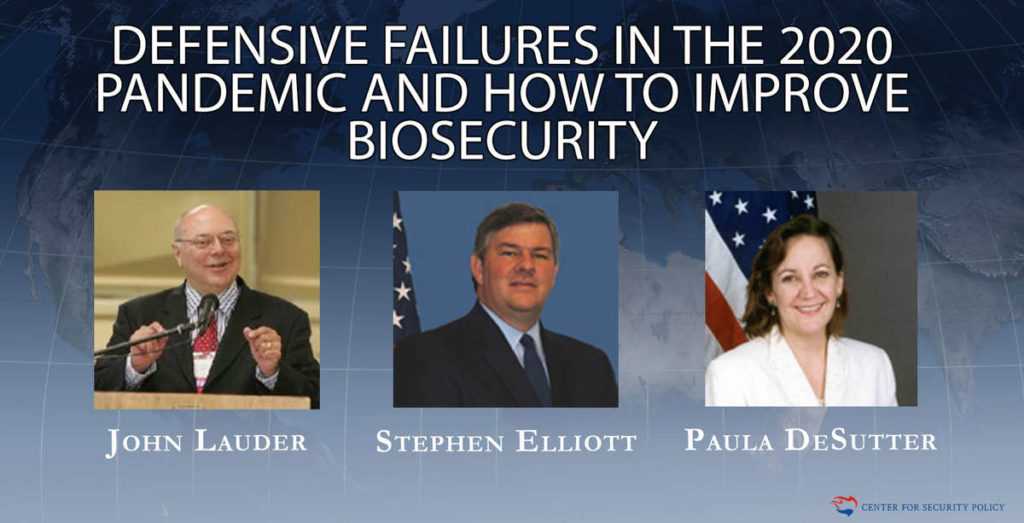Top Arms Control Experts Discuss Steps the US and the World Must Take to Defend Against Biothreats in Center Webinar

Three former U.S. national security experts with years of experience in arms control and stopping the proliferation of mass destruction participated today in the Center for Security Policy’s final webinar in its five-part Biosecurity Webinar Series. These webinars featured the contributors of the Center’s groundbreaking new book, Defending Against Biothreats: What We Can Learn from the Coronavirus Pandemic to Enhance U.S. Defenses Against Pandemics and Biological Weapons, available for purchase now on Amazon.com in paperback and Kindle versions.
The panelists were former State Department Assistant Secretary for Verification and Compliance Paula DeSutter, Stephen Elliott, a lawyer and former diplomat, and John Lauder, an independent consultant who served for 33 years with the CIA, NRO and as an arms control negotiator. The panel was moderated by Center President Fred Fleitz
Stephen Elliott discussed the Trump Administration’s 2018 National Biodefense Strategy. He said the strategy has laudable goals but falls short of what is needed to protect the United States from future epidemics. Elliott said the strategy appeared to be written by a committee and seemed to have had no bearing on how the US government responded to the 2020 coronavirus pandemic. Elliott believes this strategy must be significantly strengthened in response to the coronavirus pandemic.
John Lauder discussed his experiences countering the proliferation of biological weapons from his time working on the Defense Science Board. Lauder said transperency by the government with the public is crucial for effectively biodefense. He noted that the government did not forsee and ignored the warning signs of the widespread consequences of this kind of pandemic and that several prudent steps might have limited these consequences.
Elliott and Lauder had similar recommedations on the need for better leadership when epidemics occur, bipartisanship in dealing with biothreats, strong private-public partnerships to combat these threats, and improving preparedness, including stockpiling the appropriate protective equipment.
Paula DeSutter discussed international efforts to stop the proliferation of biological weapons and the need for an international inspection regime to inspect against biological weapons and pathogens in biolabs that could accidently cause epidemics. DeSutter noted that scuh an inspection regime would have significant limitations and would not provide complete warning of serious biothreats.
- Military Starship: How SpaceX Is About to Make America Globally Dominant - March 4, 2025
- The Cautionary Tale of Zheng He - December 4, 2024
- Frank Gaffney departs CSP after 36 years - September 27, 2024
